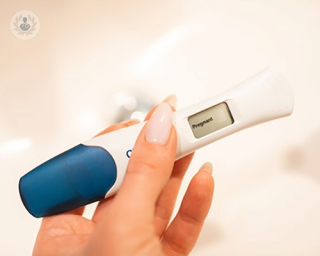Preconception care
What is preconception care?
Preconception care is an opportunity for you and your partner to improve your health before trying to have a baby. There is a greater chance of conceiving a healthy baby if both partners are healthy.
Healthcare professionals can help you to assess your health, fitness and lifestyle and identify the areas of your life that need to be improved.
Preconception care can be particularly helpful for:
- Anyone with a medical condition such as diabetes or epilepsy
- People having trouble getting pregnant
- Those with a risk of passing on a genetic condition to their baby, such as sickle cell disease
Why is preconception care important?
Preconception care is important. One reason is that about half of all pregnancies are unplanned and those that are unplanned are at a greater risk of preterm births and low birth weight babies. By taking actions to improve their health, women can lower the risk of complications that may affect their baby.
What does preconception care involve?
Men and women should prepare for pregnancy at least three months before getting pregnant. Some things like quitting smoking, reaching a healthy weight or adjusting medication should be done even sooner.
Preconception care involves:
- Taking 400 to 800 micrograms of folic acid every day if you’re planning to get pregnant. This should be done up until 12 weeks of pregnancy. Some women may need to take a higher dosage. This lowers the risk of some birth defects of the brain and spine, including spina bifida. Talk to your doctor about prescribing prenatal vitamins.
- Quitting smoking and alcohol.
- Keeping any medical condition you have under control. Conditions such as asthma, diabetes, obesity and epilepsy can affect pregnancy.
- Ensuring that your vaccinations are up to date and ask your doctor whether you should avoid using certain medications and herbal supplements.
- Following a healthy diet
- Reducing stress
- Maintaining a healthy weight. Being overweight ( BMI over 25) or obese (BMI over 30) raises the risk of some pregnancy complications.
- Avoiding contact with toxic substances that might cause infection at home and at work.
Sometimes genetic counselling may be needed if the woman and her partner have a family history of a genetic condition, cancer, a chromosomal disorder or birth defects. Some tests can determine whether a person will get or pass on a genetic disorder. A geneticist can help couples to decide if genetic testing is right for them.
Bring a list of health concerns and questions to your doctor so you can cover everything at your preconception care appointments.








